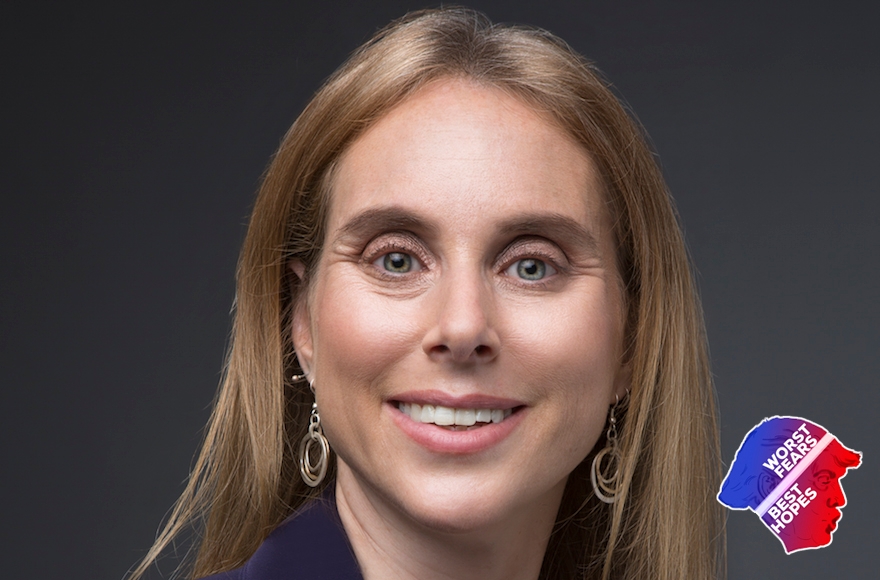Editor’s note: The upset victory by Donald Trump in the 2016 elections stunned a Jewish activist and leadership class that is at times as divided as the electorate at large. JTA asked some of those leaders to describe their concerns and expectations in a series of brief essays, “Worst fears, best hopes,” that will appear regularly between now and Inauguration Day.
Imagine the sense of dread that Abraham felt in hearing God’s prophecy, “Your seed will be strangers in a land that is not theirs, and they will enslave them and oppress them, for four hundred years.” (Genesis 15:13)
What’s scariest about this prediction is its uncertainty. When will his descendants suffer this fate? Where? What kind of oppression?
Listening to these words in the Torah reading last Shabbat, I pictured Abraham’s descendants waking each morning wondering whether this will be the terrible day.
Watching a man who ran a campaign based on hatred of minorities and authoritarian threats fumble his way into the Oval Office arouses fear that something terrible is going to happen — but we don’t know when, where or exactly what. Will our darkest fears about nuclear war come to pass? Will millions of people lose their health care? Will we see a reversal in the gains in equality for LGBT people? A ramping up of attacks on women’s health care? Massive restrictions on freedom of speech, religious freedom and freedom of the press? Irreversible climate change? Economic collapse? A break in the U.S. relationships with our allies? Even more hate speech, hate crimes, sexual assault and rape? Incompetence in the face of threatened or actual terror attacks?
My hope stems from the extraordinary resolve on the part of individuals and organizations across the country who are already committing to fight any attempts to violate human rights or erode civil liberties.
And I find hope in the history of the Jewish people, who have lived under hostile governments, suffered persecution and extermination — and have never given up hope. After all, God’s promise to Abraham ends with the assurance that even 400 years of slavery and oppression will end with liberation.
(Rabbi Jill Jacobs is the executive director of T’ruah: The Rabbinic Call for Human Rights and the author of two books on Judaism and social justice.)
Previous articles in this series can be found here.
JTA has documented Jewish history in real-time for over a century. Keep our journalism strong by joining us in supporting independent, award-winning reporting.






